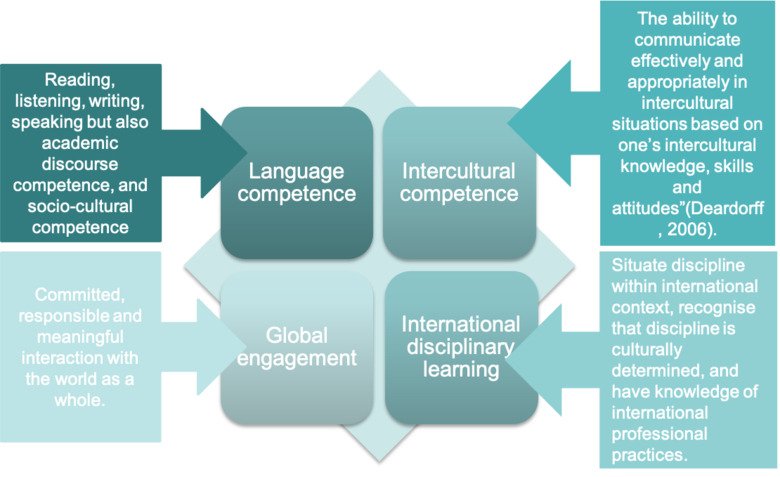Workshops in internationalisation of the curriculum for teachers
When teachers have access to continuous learning prospects and professional development resources e.g. workshops, they are well equipped to become efficient teachers. Acquiring new teaching strategies through professional development, make teachers able to go back to the classroom and adopt adjustments to their lecture styles and curricula to better suit the needs of their students.
At this stage it is key to reach out to the study programmes and to carry out a workshop. In order not to create extra workload for the study programmes, it was decided that the workshop would be part of the bi-annual teaching day each study programme must hold. The purpose of these bi-annual teaching days is for study programme stakeholders to come together and discuss the quality of their activities, often with a focus on developing the professional competences of teachers in specific educational themes such as digitalization, assessment, inclusive learning, internationalisation, etc.
Themes and issues to address
The activities during the workshop included:
- Discussing the cultural foundations of dominant paradigms in your discipline.
- Examining the origins and nature of the paradigm within which you work.
- Identifying emerging paradigms and thinking about the possibilities they offer.
- Imagining the world of the future: what and how will your students need to learn, in order to live and work effectively and ethically in this future world?
- Imagining different ways of doing things in the foreseeable future.
- Negotiating possibilities.
From the results of the questionnaire, Mapping Internationalisation at KI, you will now have a clear idea of who the champions are, where best practices lie, but also highlight other, less visible instances of internationalised education that already exist.
The tools
During the workshop, it is important to introduce the participants to two tools that will facilitate the constructive alignment of an internationalised curriculum. These tools were used to facilitate the process of integrating internationalised competences.
First, we needed to define what international competences are in the context of higher education. KULeuven, in association with other Belgian universities, developed a set of international competences from which we adapted and developed the following:

The project team looked at each domain of competence and created a matrix with each domain accompanied by descriptors, and either examples of teaching and learning activities (TLAs) or examples of intended learning outcomes (ILOs). This tool can help programme-level, course-level, and module-level alignment with international competences.
Template for teachers
To assist teachers in using constructive alignment and make it more concrete, we put together a template for teachers to assist them in constructively aligning their courses or modules. We also provided an inspiring example of how to fill the template.
The workshop was designed to engage teachers in stimulating and inspiring conversations from which they could formulate concrete activities and actions. Through a World café, teachers had to brainstorm ideas and activities related to:
- Language competences
- Intercultural competences
- Global health perspectives
- Supporting students
- Training teachers / admin
Selecting priorities
Teachers were asked to rank their ideas according to the time it would take them to carry out and what that corresponded to in terms of learner gains. In this way, the IoC team then collated this information and presented it to the study programmes in the form of a 3-year action plan, so that the study programme could move onto Step 3 - Revise and plan.
In addition to workshops for teachers, we also developed workshops for support staff, as well as workshops and focus groups with students.
